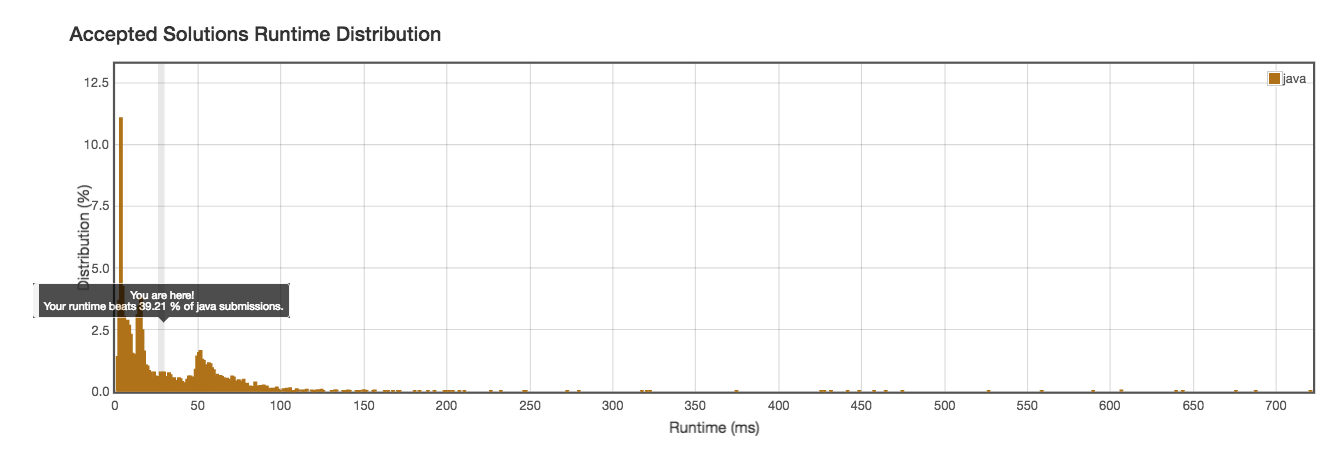Description
Find the kth largest element in an unsorted array. Note that it is the kth largest element in the sorted order, not the kth distinct element.
For example,
Given [3,2,1,5,6,4] and k = 2, return 5.
Note:
You may assume k is always valid, 1 ? k ? array’s length.
O(n) solution using partition method in quick sort algorithm
The smart approach for this problem is to use the selection algorithm (based on the partion method - the same one as used in quicksort).
Like the quick sort, to avoid the O(n^2) worst case scenario, we need to randomize the list to guarantee the O(n) time complexity.
Alternative, but less interesting solution is to use a k size Priority Queue, which cost O(nlogn) timeComplexity.
public class Solution {
public int findKthLargest(int[] nums, int k) {
// Collections.shuffle(List<?>);
nums = randomizeList(nums);
int n = nums.length;
int pivot = partition(nums, 0, n-1);
while (pivot != n-k) {
if (pivot < n-k) {
pivot = partition(nums, pivot+1, n-1);
} else {
pivot = partition(nums, 0, pivot-1);
}
}
return nums[pivot];
}
private int[] randomizeList(int[] nums) {
Random rnd = new Random();
for (int i=nums.length; i>1; i--) {
swap(nums, i-1, rnd.nextInt(i));
}
return nums;
}
private int partition(int[] nums, int low, int high) {
int i=low-1, pivot=nums[high];
for (int j=low; j<high; j++) {
if (nums[j] <= pivot) {
i++;
swap(nums, i, j);
}
}
swap(nums, i+1, high);
// System.out.println(i+1);
return i+1;
}
private void swap(int[] nums, int i, int j) {
int temp = nums[i];
nums[i] = nums[j];
nums[j] = temp;
}
}
}
/**
* Your WordDistance object will be instantiated and called as such:
* WordDistance obj = new WordDistance(words);
* int param_1 = obj.shortest(word1,word2);
*/
 Runtime: 28ms
Runtime: 28ms